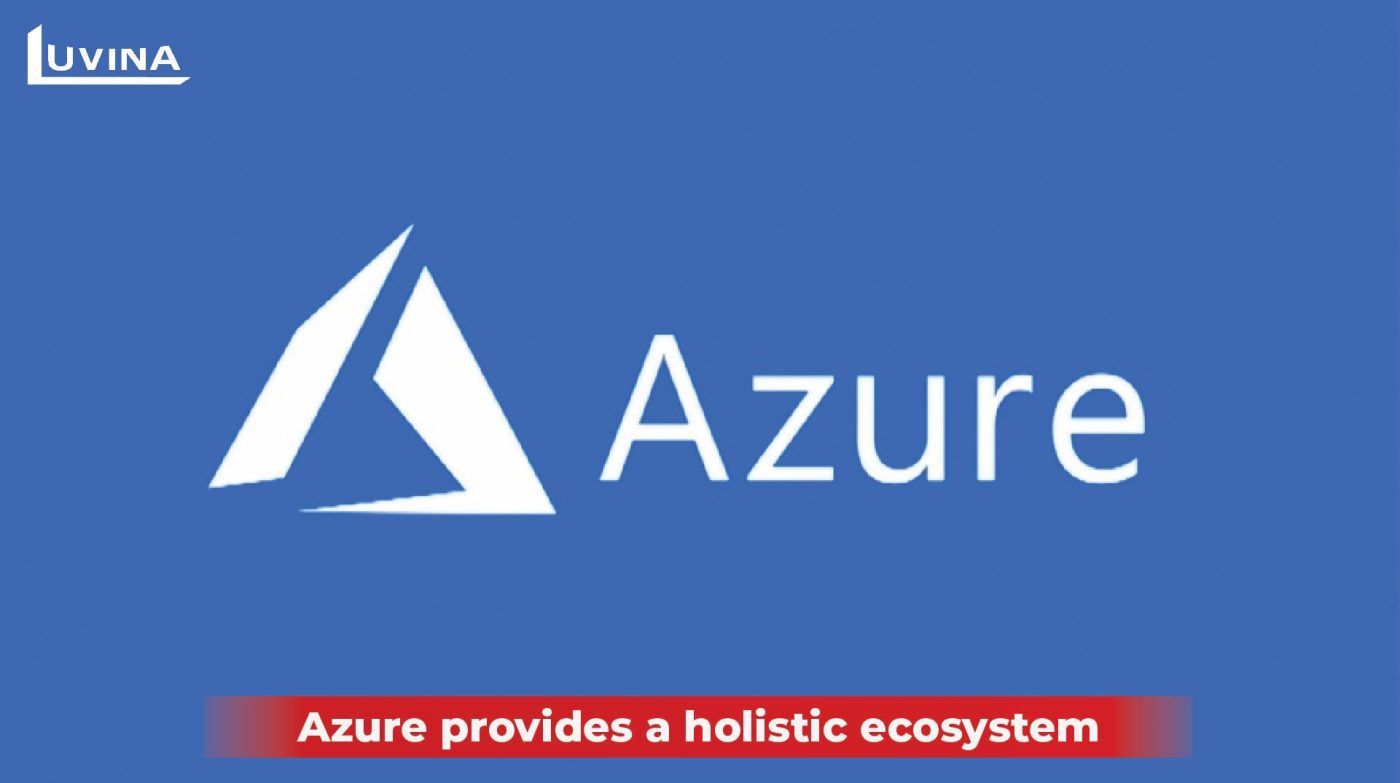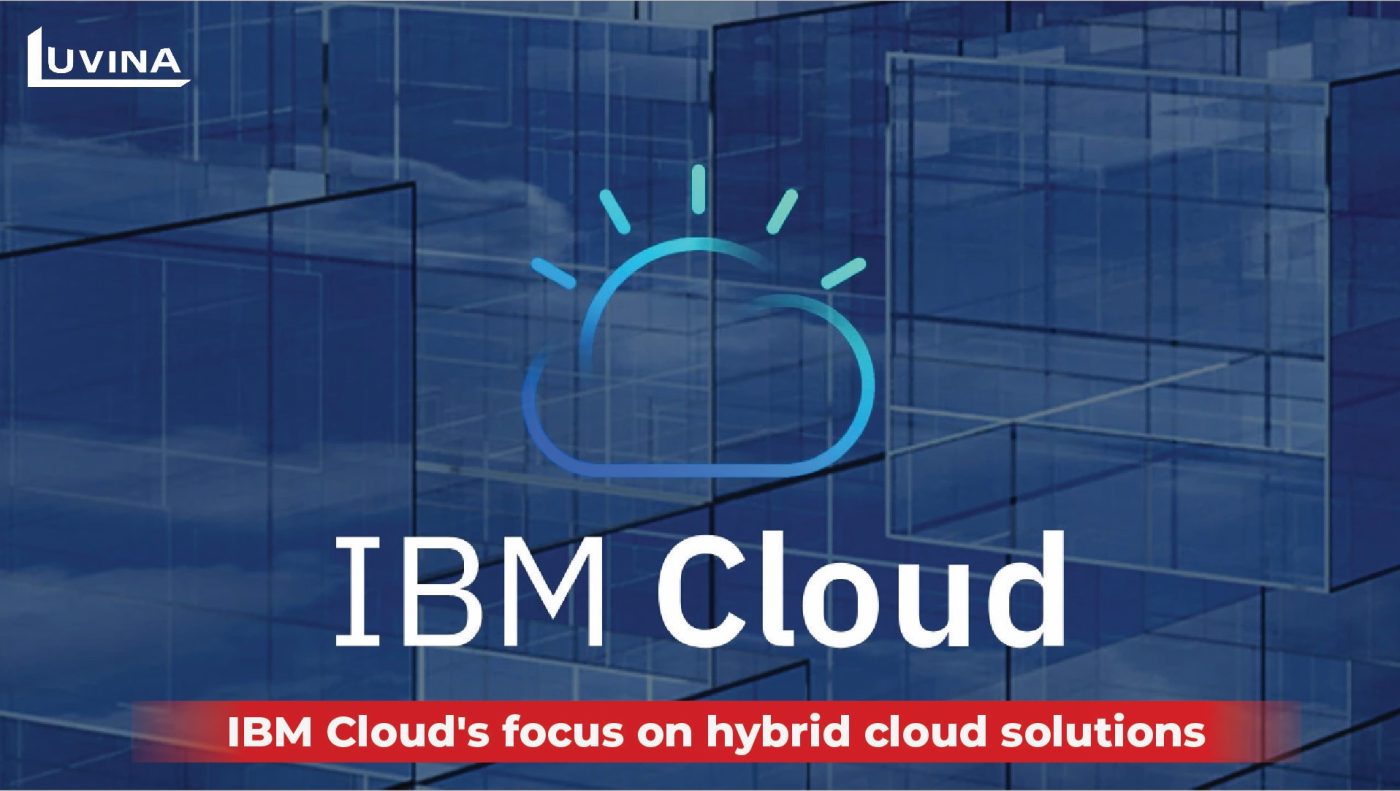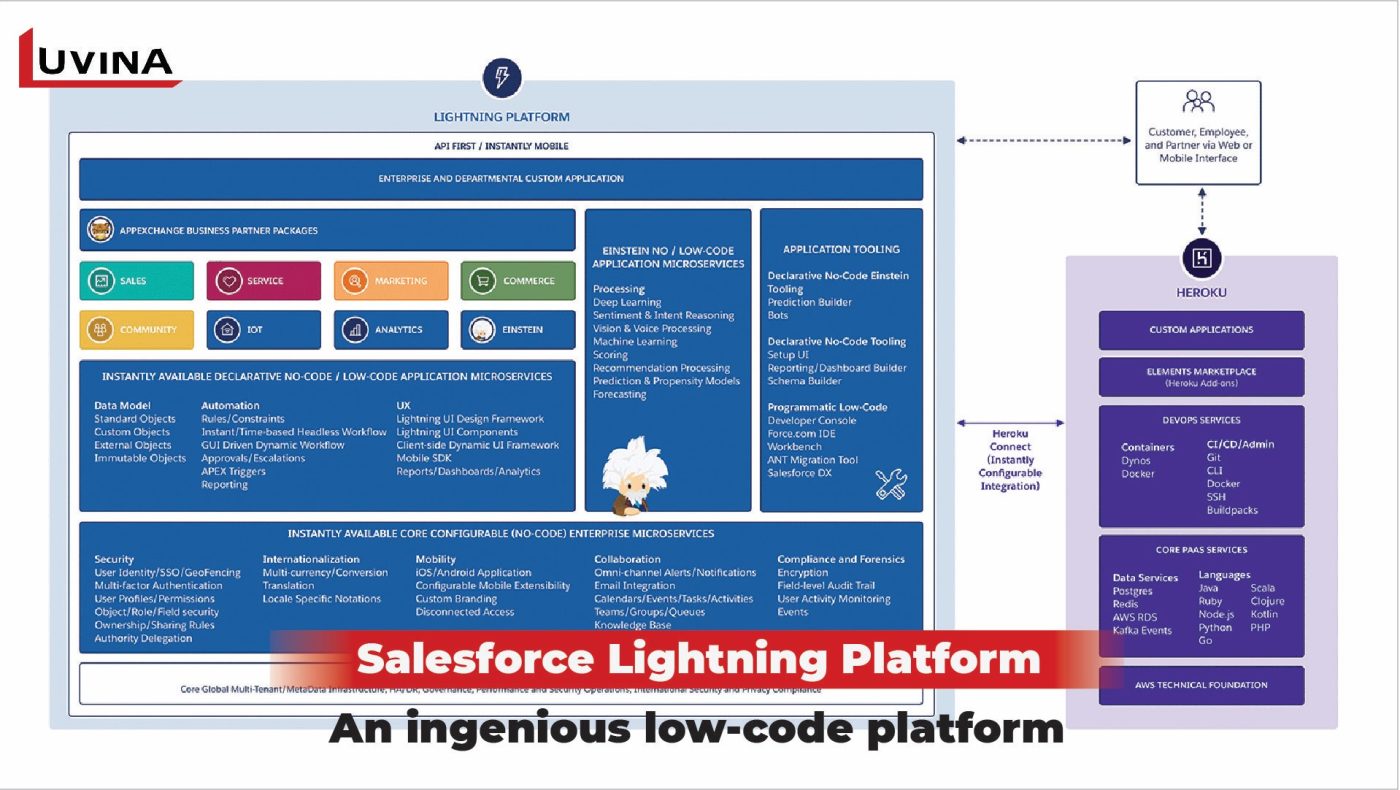In today’s ever-evolving technological landscape, businesses and developers are increasingly turning to cloud-based development platforms to enhance their software development processes. The choice of the right cloud-based development platform can significantly impact the success and efficiency of your projects. In this article, we will explore the top 9 cloud-based development platforms available.
In the fast-paced world of software development, the right tools can make all the difference. Cloud-based development platforms have become essential for modern businesses and developers, providing scalable infrastructure and a wide range of services that streamline the development process. These platforms offer the flexibility, security, and cost-effectiveness needed to succeed in today’s competitive landscape.
1. Amazon Web Services (AWS)
Amazon Web Services (AWS) offers a comprehensive range of cloud services, from infrastructure to AI, enabling businesses to build, deploy, and manage applications with ease.
>> See more: Serverless AWS Cloud Application Development
2. Microsoft Azure – Cloud-Based Development Platform

Microsoft Azure stands as a comprehensive cloud platform, offering an extensive array of services that cater to diverse business needs. From foundational services like virtual machines to cutting-edge capabilities in AI and seamless integration with IoT, Azure provides a holistic ecosystem for businesses to build, deploy, and manage applications and services. Its hallmark lies in its seamless integration with Windows environments, allowing businesses already entrenched in Microsoft technologies to leverage Azure seamlessly.
This integration simplifies the migration of existing applications, enabling a smooth transition to the cloud while maintaining compatibility and familiarity for developers and administrators. With Azure’s robust suite of services and its synergy with Windows environments, businesses gain a powerful toolset to innovate, scale, and drive digital transformation within their operations.
3. Google Cloud Platform (GCP)
Google Cloud Platform (GCP) stands out as a versatile cloud solution offering a comprehensive suite of services tailored to meet a wide spectrum of business needs. Among its notable offerings are App Engine and Kubernetes Engine, which exemplify its prowess in catering to diverse application requirements. App Engine provides a fully managed platform for building and deploying web applications, enabling developers to focus on coding without worrying about infrastructure management. Meanwhile, Kubernetes Engine offers a robust container orchestration service, empowering businesses to deploy, manage, and scale containerized applications seamlessly.
These services, alongside a plethora of others within the GCP ecosystem, establish it as an ideal platform for data-driven applications. Leveraging GCP’s suite of services, businesses can harness the power of data analytics, machine learning, and scalable infrastructure, enabling them to build and deploy innovative, data-centric applications that drive insights, efficiency, and growth.
4. IBM Cloud

IBM Cloud has carved a niche in delivering specialized cloud solutions tailored for various facets of modern business requirements. The platform is renowned for its comprehensive offerings in application development, artificial intelligence (AI), and blockchain technologies, providing businesses with a versatile toolkit to innovate and thrive in the digital landscape. IBM Cloud’s focus on hybrid cloud solutions enables seamless integration between on-premises infrastructure and cloud environments, catering to the needs of enterprises seeking flexibility, scalability, and security.
Additionally, its emphasis on enterprise-level services ensures that businesses have access to robust and tailored solutions that meet stringent performance, security, and compliance requirements. By combining its strengths in application development, AI, and blockchain, IBM Cloud empowers businesses to leverage cutting-edge technologies, drive innovation, and accelerate their digital transformation journey with a focus on scalability, security, and enterprise-grade capabilities.
5. Oracle Cloud
Oracle Cloud stands as a prominent player in the realm of cloud services, specializing in delivering a comprehensive suite of offerings focused on databases, applications, and infrastructure. At the core of its services lies a robust emphasis on providing cutting-edge solutions for managing databases, enabling businesses to store, process, and analyze data efficiently and securely.
Additionally, Oracle Cloud’s suite includes a diverse array of applications catering to various business needs, ranging from enterprise resource planning (ERP) and customer relationship management (CRM) to specialized industry-specific applications. Complementing these offerings is its robust infrastructure services, providing businesses with scalable computing power, storage capabilities, and networking solutions. A hallmark of Oracle Cloud is its unwavering emphasis on security measures, ensuring that data and applications hosted on their platform adhere to stringent security protocols and compliance standards.
Furthermore, the platform’s commitment to high-performance computing empowers businesses with the computational power required for complex workloads and demanding applications. Oracle Cloud’s suite of services, coupled with its focus on security and high-performance computing, positions it as a compelling choice for businesses seeking a comprehensive, secure, and reliable cloud solution.
6. Heroku
Heroku stands out as a highly developer-friendly cloud platform celebrated for its user-friendly interface and ease of use. Its simplicity and intuitive design make it an ideal choice for startups and small teams aiming to swiftly deploy and manage applications without the complexities of infrastructure management.
One of Heroku’s key strengths lies in its robust support for multiple programming languages, providing developers with the flexibility to work with their language of choice, whether it’s Ruby, Python, Node.js, Java, PHP, or others. This flexibility enables teams to leverage their preferred tools and frameworks, streamlining the development process.
Moreover, Heroku’s platform-as-a-service (PaaS) model abstracts away much of the underlying infrastructure complexities, allowing developers to focus primarily on coding and application development. This combination of user-friendliness, support for diverse languages, and hassle-free deployment makes Heroku an attractive choice for startups and small teams seeking a streamlined and efficient cloud platform to bring their ideas to life.
7. Salesforce Lightning Platform

Salesforce Lightning Platform stands at the forefront of modern app development as an ingenious low-code platform meticulously crafted to elevate productivity and efficiency in application creation. Engineered with a visionary approach, its core ethos revolves around empowering developers of varying skill levels to swiftly build robust and feature-rich applications with remarkable agility.
This platform’s distinguishing feature lies in its intuitive interface and array of tools specifically tailored to facilitate rapid development cycles. By employing drag-and-drop components, pre-configured templates, and visual interfaces, developers can expedite the app development process, minimizing the reliance on extensive coding and accelerating the transition from concept to deployment. The seamless integration capabilities within the Salesforce ecosystem further amplify its prowess, fostering an environment where developers can effortlessly create cohesive, scalable, and interconnected applications that harness the full potential of Salesforce’s suite of services.
8. Red Hat OpenShift
Red Hat OpenShift stands as a premier enterprise-grade Kubernetes platform revered for its prowess in container orchestration and streamlined application management. Designed to facilitate the orchestration, deployment, and scaling of containerized applications, OpenShift embodies the pinnacle of innovation in Kubernetes-based solutions. Its key strength lies in providing enterprises with a robust and comprehensive platform that streamlines the deployment and management of containerized applications across diverse environments.
Leveraging the power of Kubernetes at its core, OpenShift adds enterprise-grade features and support, offering a scalable, secure, and reliable foundation for businesses to efficiently build, deploy, and manage their applications. With its emphasis on security, automation, and developer productivity, Red Hat OpenShift emerges as an indispensable tool for enterprises seeking a seamless and powerful solution for container orchestration and application lifecycle management.
9. Mendix
Mendix stands as a revolutionary low-code development platform hosted in the cloud, engineered explicitly to expedite the process of application development. Celebrated for its intuitive nature and user-friendly interface, Mendix enables the rapid creation and deployment of applications without the need for extensive coding expertise.
Its hallmark lies in simplifying the development lifecycle through visual modeling, drag-and-drop components, and a plethora of pre-built templates, allowing developers of varying skill levels to swiftly design and iterate applications.
Mendix’s cloud-based infrastructure further enhances accessibility and collaboration among teams, enabling seamless development, testing, and deployment processes. By prioritizing simplicity and ease of use, Mendix empowers businesses to innovate at speed, transforming ideas into functional, scalable applications that drive digital transformation within organizations.
>> Also read: How to Choose the Right Cloud Service Development Tools
Conclusion
Choosing the right cloud-based development platform is a crucial decision for any project. Each of these platforms offers a unique set of services, and the choice should align with your specific needs and goals. We hope this overview of the top 9 cloud-based development platforms helps you make an informed decision and encourages you to explore emerging platforms that may suit your projects best.
{ Get everything you ever
wanted to know about IT.}
Read More From Us?
Sign up for our newsletter








Read More From Us?
Sign up for our newsletter
Read More From Us?
Sign up for our newsletter